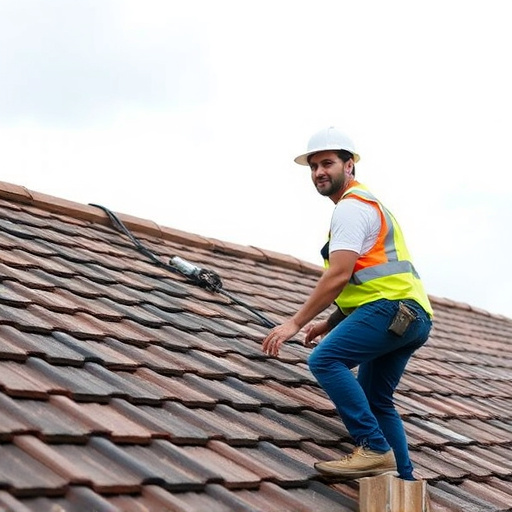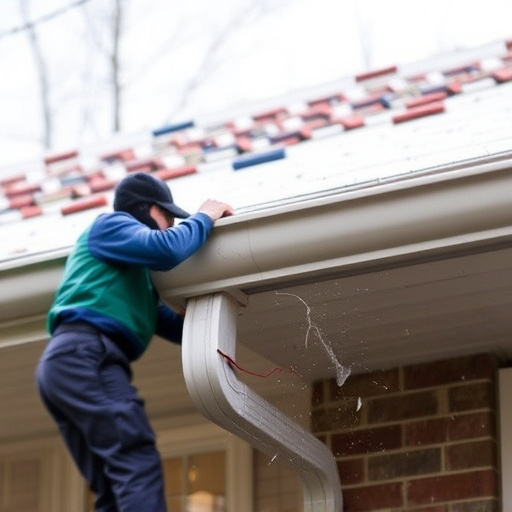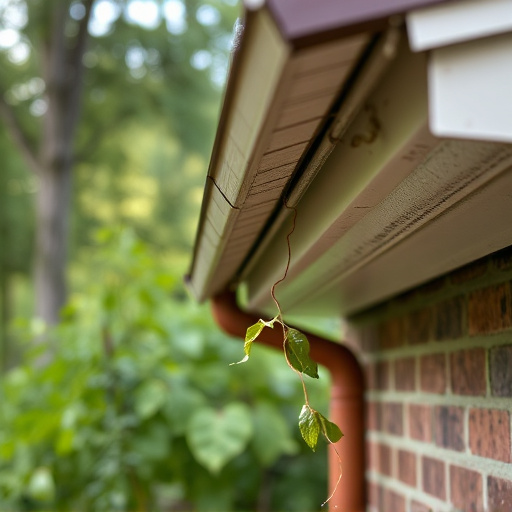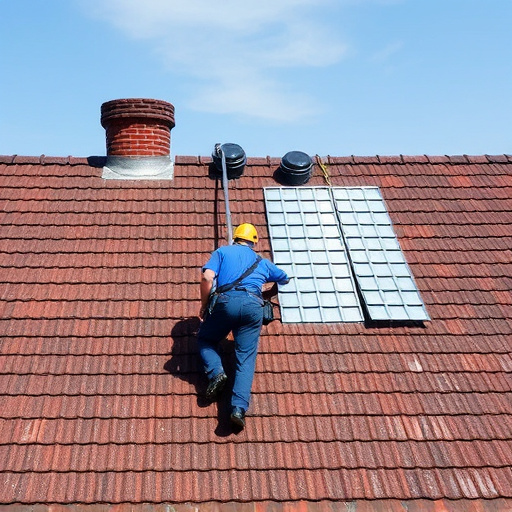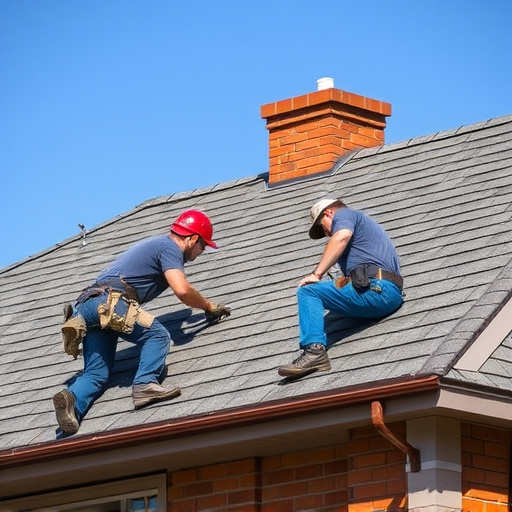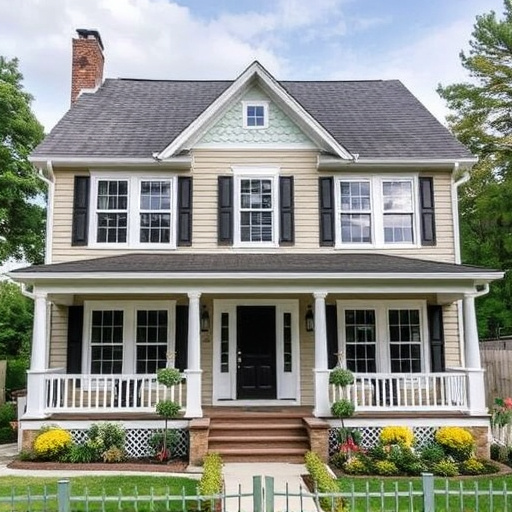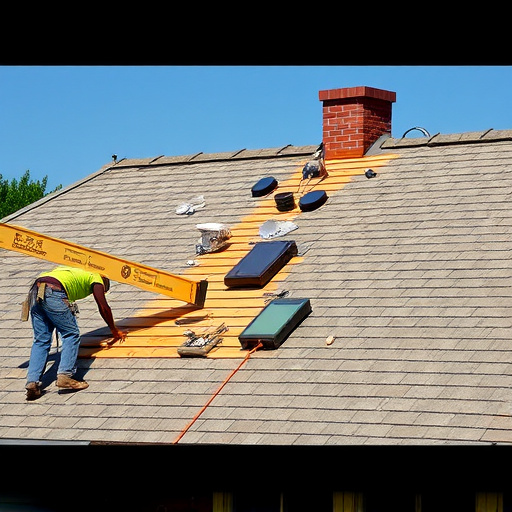Before starting a roof installation project, understand local building codes and regulations to ensure safety and comply with permits. This process involves assessing needs, selecting materials, and obtaining permits for exterior alterations. Both residential and commercial roofs require permits and adherence to guidelines, focusing on structural integrity, fire safety, ventilation, energy efficiency, and insulation.
Planning a roof installation? Navigating local regulations can be challenging, but understanding the necessary permits ensures your project complies with safety standards. This guide breaks down the essential steps and permissions required for both residential and commercial roof installations. We’ll explore how to interpret local building codes and obtain the critical permits, ensuring a smooth and legally compliant roofing process. From permitting to installation, get ready to transform your space with confidence.
- Understanding Local Building Codes for Roof Installation
- Essential Permits for Safe and Legal Roofing Work
- Common Requirements for Residential and Commercial Projects
Understanding Local Building Codes for Roof Installation
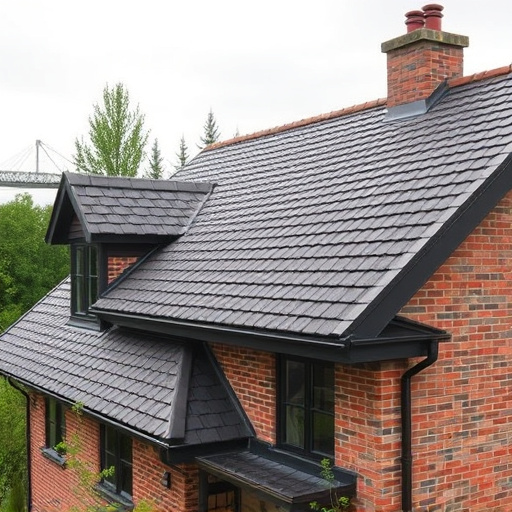
Before starting a roof installation project, it’s crucial to understand local building codes and regulations. These rules are designed to ensure safety and maintain the structural integrity of your property. Every region has its own set of guidelines governing construction projects, especially for roofs, which are critical components of any structure. Failure to adhere to these standards can result in fines or even project delays.
Home service solutions often begin with a roof consulting phase where experts assess your property’s needs and feasibility. Residential siding is another essential aspect that complements roof installation. By familiarizing yourself with local building codes, you can ensure a smooth process and avoid potential legal issues. This knowledge will enable you to make informed decisions and choose the best materials for your new roof.
Essential Permits for Safe and Legal Roofing Work
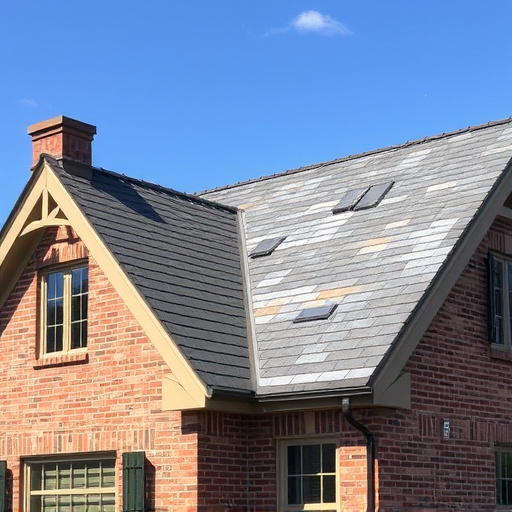
Before starting any roof installation project, it’s crucial to obtain the necessary permits to ensure safe and legal roofing work. These permits are essential safeguards that protect both homeowners and contractors, as they validate the project’s compliance with local building codes and regulations. Every municipality has its own set of requirements, so understanding these guidelines is vital for a smooth construction process.
For instance, many areas mandate permits for any work involving alterations to a home’s exterior, including roofs, siding, and gutters. Home service solutions that offer residential siding installations or roof repairs should inquire about local permitting processes to avoid legal complications. By securing the required permits, contractors can proceed with confidence, knowing their work meets safety standards, while homeowners can rest assured their investment is protected by compliant residential siding and gutter systems.
Common Requirements for Residential and Commercial Projects
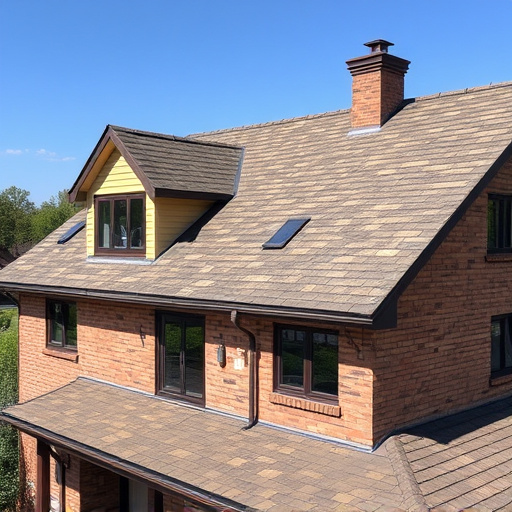
When planning a roof installation project, whether it’s for a residential or commercial property, understanding the common requirements is essential. Both types of projects typically demand similar permits and approvals, albeit with some variations based on local building codes and regulations. For instance, in many areas, a building permit is a fundamental necessity for any roofing work, encompassing new installations, replacements, or significant repairs. This ensures that all construction adheres to safety standards and structural integrity guidelines.
Additionally, for commercial roofs, fire safety and accessibility regulations might come into play. These often involve requirements for fire-resistant materials, proper ventilation, and easy access for maintenance and emergency response teams. In contrast, residential projects may focus more on energy efficiency and insulation standards. Nonetheless, understanding these common requirements is crucial for a smooth project execution, ensuring that your roof installation complies with all necessary regulations and fosters a safe living or working environment.
When embarking on a roof installation project, navigating local building codes and obtaining the necessary permits is crucial for ensuring safe and legal work. Whether it’s a residential or commercial endeavor, understanding the specific requirements is essential. By familiarizing yourself with these regulations and securing the appropriate permits, you can avoid potential penalties and create a solid foundation for your roofing project. Remember, a well-permitted roof installation not only complies with local laws but also guarantees peace of mind for years to come.








